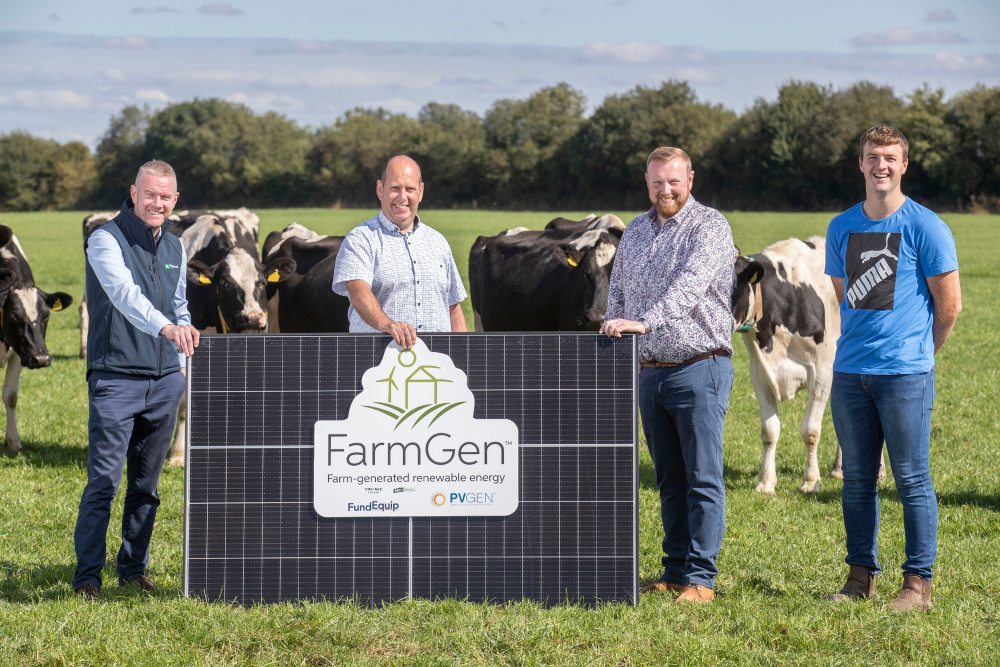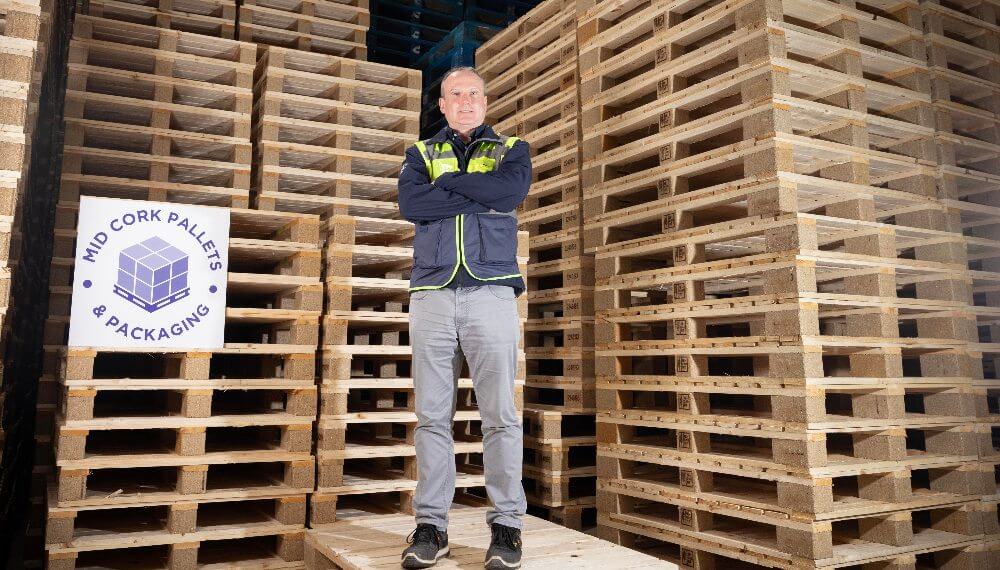In order to remain on global supply chains Irish businesses will need to demonstrate and report viable carbon reduction measures. A new Enterprise Ireland-led webinar series aims to tackle this looming challenge.
Businesses everywhere can be forgiven for having a bit of green fatigue around sustainability and global warming.
But the reality is that when it comes to not only doing the right thing by the environment, being able to remain on the supply chains of customers that have their own carbon reduction challenges and targets, Irish SMEs are in danger of finding themselves left out in the cold.
“We want to see many more of our clients have a robust sustainability plan in place so that they can continue to enter into different contract negotiations and tenders”
A new Green Transition Webinar series led by Enterprise Ireland kicks off this week (6 September). The eight-part series will focus on several aspects of the sustainability journey – from initial planning and capability building – to investment, research and innovation, and developing new products and processes. It will aim to help businesses understand the imperative to act and show a clear path to improved performance.
The series will focus on other important topics, including green skills, sustainability reporting ESG, becoming a B Corp and the circular economy and more.
The first webinar will focus on ‘What does a climate action journey look like?’, and attendees will hear from Paul Murphy of Climeaction, an industry expert with extensive experience in industrial energy efficiency and decarbonisation of manufacturing organisations. This discussion will offer advice and insights from his work with some of the world’s largest companies across the food and dairy, beverages, manufacturing and life science sectors.
The second instalment will focus on SMEs, particularly those at the beginning of their sustainability journey, and participants will learn about the SME Climate Hub, a one-stop shop where they can get free tools to measure emissions, take climate action and report progress.
On 20 September, Bank of Ireland’s sectoral expert on Sustainability Susie Crawford will host a webinar focused on financing a sustainable transition from 1pm-2pm. “The webinar will dive into the key issues concerning SMEs when it comes to sustainability, including how to identify and prioritise areas for action and investment as well as some tips on finance and grant supports available. Please join us find out more about taking the next steps on your sustainability journey,” Crawford said.
Demonstrable actions
“SMEs need to demonstrate they are making the green transition and that they are on a sustainability journey. They need to be able to dovetail with and compliment the stringent reporting standards that are coming to bear from larger corporates”
New research from by Red C on behalf of Bank of Ireland found that 70% of Irish businesses are concerned about sustainability issues. 62% see sustainability as a risk but 73% see it as a critical factor guiding the success of their business.
The research found that only 13% of Irish SMEs have set sustainability targets. However, for those SMEs with sustainability targets most (70%) have aligned them with their company’s strategic business measures. 19% see financial incentives for achieving these targets.
Speaking with ThinkBusiness ahead of the new series Alexa Toomey, head of Sustainability, Renewable Energy & Agtech at Enterprise Ireland explained how sustainability is a core pillar of Enterprise Ireland’s strategy.
She said it is a pivotal time for businesses across Ireland to consider how their operations impact the environment and how climate change affects their business.
Enterprise Ireland’s own research echoed the Red C research in finding that only one-third of Irish businesses actually have a sustainability plan.
“It’s great that a third have a plan in place. We welcome it,” Toomey said. “But what about the others? We want to see many more of our clients have a robust sustainability plan in place so that they can continue to enter into different contract negotiations and tenders. Not only that but it is important in terms of skills and future hires that they can continue to position themselves as an employer of choice. For younger demographics, not only are salaries important but the kind of companies they will work with. So having a sustainability plan in place also matters at a time when companies are finding it hard to attract and retain talent.”
Toomey said that from a winning business point of view, sustainability plans will be key – but it goes deeper than that. “There are also efficiencies to be gained. If we look at everything businesses have been through in the past year with energy prices, it is important to be more energy efficient to drive your costs own. If you can drive your costs down not only can you improve the bottom line, you can compete better in the international marketplace and you have a better chance of attracting talent. It’s simply good for your business.”
She urged businesses to pay attention to the strong array of green transition supports that the Irish Government through Enterprise Ireland has made available for Irish businesses.
Bank of Ireland’s head of Customer Journeys & SME Sectors Jillian Clarkin said the bank works with businesses embarking on their green journeys but also with innovative businesses that powering those journeys, such as makers and installers of solar panels and other sources of renewable energy and more.
“We’re seeing both sides; how it’s impacting the requirements for businesses to accelerate and win business, but also the customer access to providers of solutions that allows SMEs to invest in their business and reduce costs.”
Clarkin shares Toomey’s concern that by not moving fast enough to demonstrate carbon reduction via viable sustainability plans, Irish SMEs risk not qualifying for more stringent procurement processes by bigger business customers.
“SMEs need to demonstrate they are making the green transition and that they are on a sustainability journey. They need to be able to dovetail with and compliment the stringent reporting standards that are coming to bear from larger corporates.
“So this seminar series is about empowering them and educating them about where to start. There are lots of businesses already doing amazing and interesting things. And the good news is that SMEs are adaptable. But the time to act is now.”
Green Transition Webinar Series: Full schedule
- 6 SEPT 2023 “What does a climate action journey look like?” 1pm-2pm
- 13 SEPT 2023 “SME Climate hub: Helping small businesses deliver on their climate goals” 1pm-2pm
- 20 SEPT 2023 “Green Financing: Financing a sustainable transition” 1pm-2pm
- 26 SEPT 2023 “B Corp: Standard of social and environmental performance, accountability, and transparency” 1pm-2pm
- 4 OCT 2023 “Sustainability Reporting & ESG” 1pm-2pm
- 11 OCT 2023 “Policy Regulatory and Business Focus on Net Zero Emissions” 1pm-2pm
- 18 OCT 2023 “Green Skills: Skills for the green economy” 1pm-2pm
- 25 OCT 2023 “Circular Economy: Closing the circular innovation gap and accelerating the net-zero carbon circular economy in Ireland” 1pm-2pm






